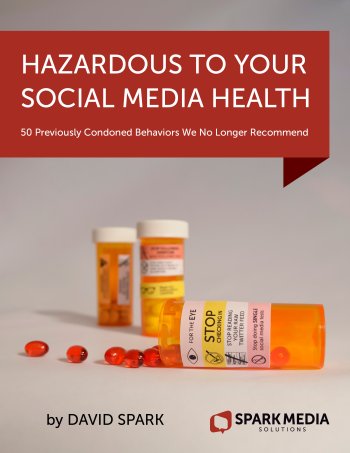Look around and take an inventory of all the products around you. Right now, looking at my desk I see my computer, two monitors, a power adapters, external hard drives, a USB hub, a printer, two microphones, two microphone stands, an audio recorder, a mixing board, speakers, a tripod, pens, notepads, a printer, a video camera, and a camera light.
All of these products have three things in common:
- I don’t know their stories.
- I don’t care to know their stories.
- I love using these products.
If you can say the same about the products around you, then why are you listening to “social media experts” that keep telling you that it’s all about the story.
I agree that story can help sell products, and for more complex products, especially in the B2B space, it’s almost always critical to have a really good story. But contrary to what has recently been hammered into our heads as an industry rule, story is not necessary for success as evidenced by all the products around us we happily use yet don’t know their story.

Not wanting or needing to know a story doesn’t mean we don’t want interaction with these products. In many cases what we want are alerts of new products, new features, or coupons. That’s not story. That’s timely relevant information from consumers or potential customers interested in your product.
Storytelling is used to improve message retention and more often to increase your likeability. It’s often unnecessary and designed to pump up a wilted ego rather than drive the bottom line. Most customers don’t want to be your friend. Be happy they want your product or service.
 “Don’t assume all your customers want to be tied into your every action or that they care about you. Some just want your news, or your offers, or, more likely, your discounts to your products,” said Lisa Barone (@lisabarone), Vice President of Strategy at Overit. “It’s okay for you to give them that and cut out the chitchat.”
“Don’t assume all your customers want to be tied into your every action or that they care about you. Some just want your news, or your offers, or, more likely, your discounts to your products,” said Lisa Barone (@lisabarone), Vice President of Strategy at Overit. “It’s okay for you to give them that and cut out the chitchat.”
“Stop telling your stories” is one of the recommendations from my ebook, “Hazardous to Your Social Media Health: 50 Previously Condoned Behaviors We No Longer Recommend.” For this post I expanded on the topic of stories being unnecessary. To learn more about social media rules that are no longer valid, download the book for free. You’ll get tons of fun insight from 56 industry experts.
Stock photo of typewriter courtesy of Bigstock Photo.
![]()




